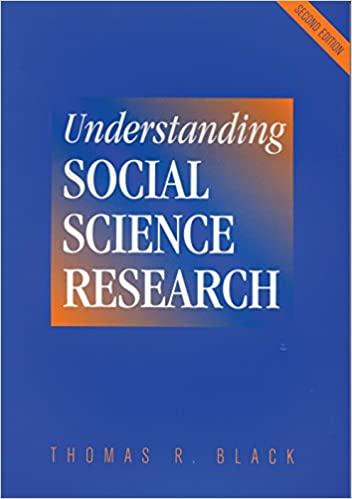Question
Piaget characterizes children as egocentric (everyone sees, thinks, and feels just as they do) (Lally and Valentine-French, 2019). Like a curious scientist, the children experiment
Piaget characterizes children as egocentric (everyone sees, thinks, and feels just as they do) (Lally and Valentine-French, 2019). Like a curious scientist, the children experiment with everything around them, and through this experimentation they are able to achieve greater understanding of how things work around them. Piaget theorized that children do not consider others, they are unphased by adult logic (Davidson Films, 2011). For example, a young child around 4-5 years old will theorize that 2 slices of pizza are better than 1, rather than compare the actual size of the pizza to see if they're getting more. Vygotsky, to the contrary argued that children are much more impacted by the culture around them (Lally and Valentine-French, 2019). He believed that children can gain knowledge through interaction and instruction with the adults around them like parents and teachers, comparable to an apprentice. If properly explained to the child, an adult can facilitate greater knowledge than the child's exploration will on their own accord. Given the same situation with the pizza, a teacher can show the child that although 2 is larger in quantity, 1 larger slice of pizza may equate to more pizza than the 2 slices.In this regard, the two theories differ slightly when it comes to the development of very young children. Vygotsky also theorized that egocentric speech (thinking ofone's self), as Piaget believed, is not as elaborate as the speech used when we communicate with others (Lally and Valentine-French, 2019).
These two theories can be tied into one belief that a child can start out thinking egocentrically, and can be taught by a teacher or adult at an early age that there are other considerations to help the child relate. Vygotsky conceptualized the idea of a zone of proximal development, which demonstratesnhow the teacher can identify the child's zone and essentially help them grow beyond it (Lally and Valentine-French, 2019).
As a daycare teacher in the past, I observed toddlers of various backgrounds and cultures and witnessed their growth over time. There is great development at these young ages. Each child grows at their own pace and is individual based on their culture and the social as well as economic factors around them. Children that are more mature and further along in development will play well with the other children and exhibit socially normal behavior when around their classmates and adults. Often times, this was due to parents support outside of school, as I personally witnessed. Some Children that spoke different languages at home or were not as far along developmentally as the others, with less support from their parents, often exhibited more aggressive behaviors towards the other children, and were more egocentric in their thinking and play than the others. This observation, helps to demonstrate a balance between both Piaget's view as well as Vygotsky's.
References
Lally, M., & Valentine-French, S. (2019). Lifespan Development: A Psychological Perspective (2nd ed., pp. 123-126)
http://dept.clcillinois.edu/psy/LifespanDevelopment.pdf
Someone may respond by writing about problems of the newborn or other information from the assignments.
Step by Step Solution
There are 3 Steps involved in it
Step: 1

Get Instant Access to Expert-Tailored Solutions
See step-by-step solutions with expert insights and AI powered tools for academic success
Step: 2

Step: 3

Ace Your Homework with AI
Get the answers you need in no time with our AI-driven, step-by-step assistance
Get Started


